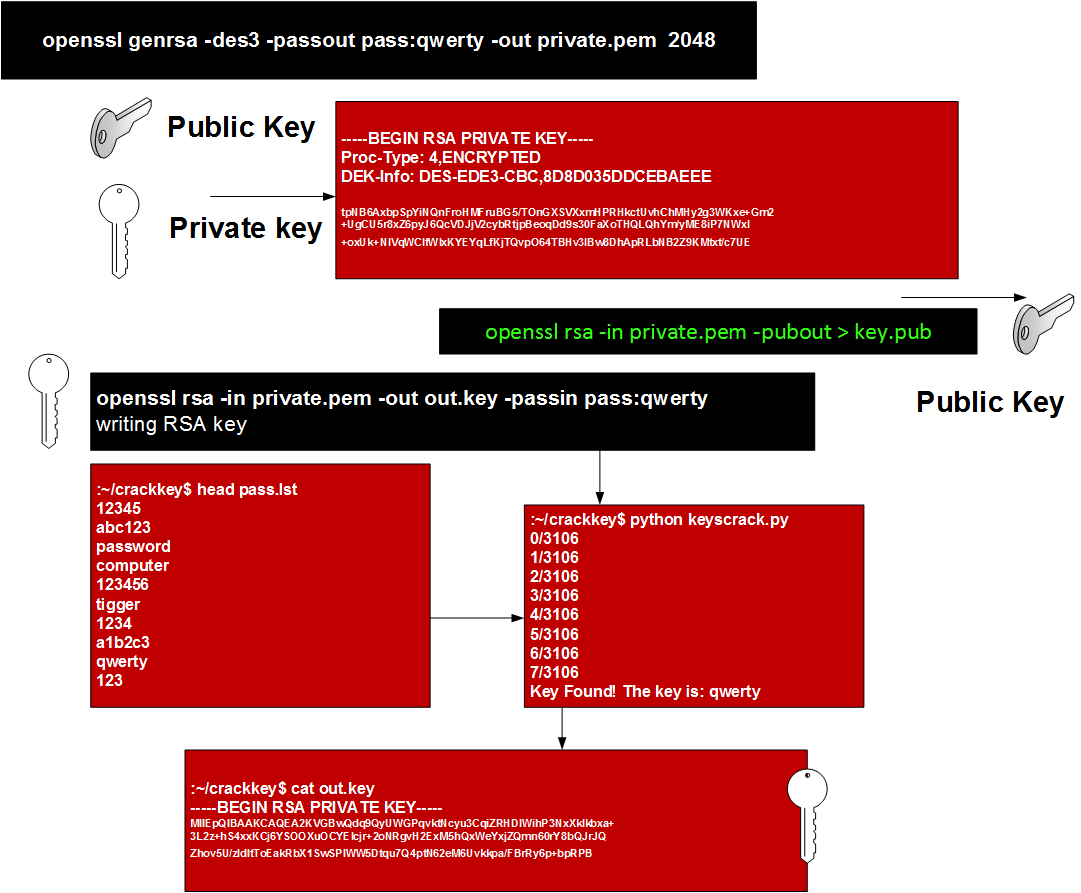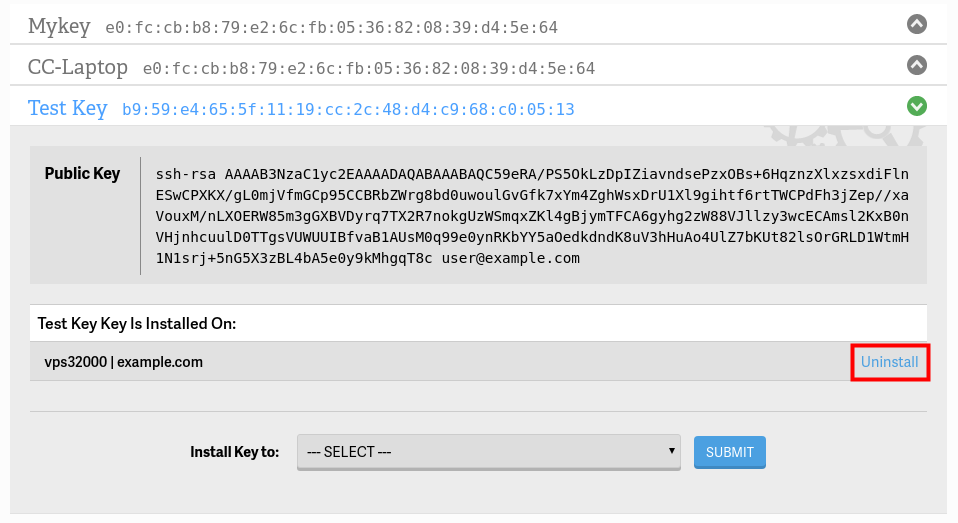- Traditionally SSH uses RSA for keys (as seen above), which is what you'll likely see on your Macbook. However, it's quite likely that when you're connecting to a Linux server running a newer version of OpenSSH you'll get a message about an ECDSA fingerprint the first time you connect.
- SSH Keys and Public Key Authentication. The SSH protocol uses public key cryptography for.
- Openssl Ssh Key
- Openssl New Key
- Openssl Generate Ssh Key
- Openssl Ssh Key Fingerprint
- Generate Openssl Key
Hello!
This week we're gonna dive into SSH and, to a lesser extent, OpenSSL.
Assuming you have the SSH private key idrsa, you can extract the public key from it like so. Openssl rsa -in idrsa -pubout -out idrsa.pub.pem I realize the OP asked about converting a public key, so this doesn't quite answer the question, however I thought it would be useful to some anyway.
Today we're going to cover everything that you wanted to know(or at least that I wanted to know)about SSH Public Keys but were too afraid to ask(well, except that you're obviously asking now)and that your parents wouldn't tell you anyway(mostly because they had no idea).
In short, the text format (RFC 4253) is like this:
id_rsa.pub (or id_ecdsa.pub):
For example:
And the binary format looks like this:
[decoded-ssh-public-key]:
As to what that means, well, it's all explained below!
But First: Private Keys
Update: It used to be that OpenSSH used the same standard DER/ASN.1formats as OpenSSL for private keys. Now, however, OpenSSH has its ownprivate key format (no idea why), and can be compiled with or without supportfor standard key formats.
It's a very natural assumption that because SSH public keys (ending in .pub)are their own special format that the private keys (which don't end in .pemas we'd expect) have their own special format too.

However, they're actually in the same stardard formats that OpenSSL uses.
If you want more info check this out:
Public Keys: What you see
As you (a reader of this article) have probably already found out(hence you're here), SSH public keys are not standard OpenSSL keys,but rather a special format and are suffixed with .pub.
A typical id_rsa.pub will look like this:

Traditionally SSH uses RSA for keys (as seen above), which is what you'll likely see on your Macbook.
However, it's quite likely that when you're connecting to a Linux server running a newer version ofOpenSSH you'll get a message about an ECDSA fingerprint the first time you connect.
The ECDSA keys are much shorter than RSA, thoughjust as secure, if not moreso,and the id_ecdsa.pub format is about the same:
Here's the general format for all SSH public keys:
What you don't see
If you take the key apart it's actually very simple and easy to convert. It looks like this:
[decoded-ssh-public-key]:
Want to see on online demo?

RSA key caveats
In ASN.1 / DER format the RSA key is prefixed with 0x00 whenthe high-order bit (0x80) is set.
SSH appears to use this format.
After running thousands of automated iterations of ssh-keygen I can say this with certainty:
- The 3rd element of the SSH key is the RSA
nvalue (given) - The 1st byte (0-index) of the 3rd element always begins with
0x00 - The 2nd byte (1-index) of the 3rd element is never less that
0x90(144 or10010000)
Thus a 2048-bit key actually has only 2046-bits bits in its keyspace(which was already only about 256 bits in practice anyway because only probable primes are used).
I'd like to repeat this with OpenSSL to ensure that it holds trueand see how ssh-keygen converts such a number to SSH format (i.e. 0x00 padding)if it doesn't hold true. My best guess is that it does.
I believe that the exponent is limited to a 32-bit integer, buthonestly I don't care since all practical applications use 0x10001(that being 65537 or 10000000000000001).
EC key caveats
The EC key is begins with 0x04 which is a throw-away byte that meansthe key is in x+y or uncompressed format.
(compressed format is smaller, as omits the derivable y value, but requiresmore implementation details to use - namely deriving y - so it is most oftenincluded in order to kepp things simplicity)
If it's a P-256 key then the next 32 bytes (256 bits) are the x value and theremaining 32 bytes are the y value. For P-384 length of each is 48 bytes(384 bits).
Either way the keys are padded with 0x00 up to the length of the key,so you can strip those away (and for some formats, such as JWK, you must strip them).
Go forth and do!
Openssl Ssh Key
From here, with the right vocabulary and a high- (and low-) level understanding,it should be pretty easy to find examples any specific ssh-keygen commands onStackOverflow and even write your own parser/packer combo as I did:ssh-parser (demo),ssh-packer (demo).
Bonus Material!
Just a few more things, in case you're interested:
(and with any luck those will lead you further down a few rabbit holes)
Openssl New Key
Openssl Generate Ssh Key
By AJ ONealDid I make your day?
Openssl Ssh Key Fingerprint
(you can learn about the bigger picture I'm working towards on my patreon page )
Generate Openssl Key
Please enable JavaScript to view the comments powered by Disqus.